On Friday, April 25, 2025, Pastor Martin Ssempa, a prominent evangelical leader in Uganda, unveiled his groundbreaking book, Why Are You Geh? Africa’s Resistance to Homosexuality (Volume 1), at a vibrant and well-attended event at Hotel Africana in Kampala. The 500-page work, celebrated as a vital resource for educators, policymakers, religious leaders, and families, champions the cultural and spiritual resistance of Africa to what Ssempa describes as a global LGBTQ+ agenda—a movement he frames as a form of modern Western colonialism. The launch, attended by notable figures including Hon. David Bahati, religious leaders, and cultural elders, ignited passionate discussions about identity, sovereignty, and the preservation of traditional values in Africa amidst external pressures. You can buy the book here.

About the Book
Why Are You Geh? is a meticulously researched volume that chronicles the historical and cultural opposition to homosexuality in Africa, positioning this stance as a defense against Western ideological imposition. Drawing from firsthand accounts, letters, speeches, legal proceedings, and policy documents, the book explores the pivotal role of Uganda in resisting what Ssempa calls an externally imposed LGBTQ+ movement. Ssempa argues that this movement represents a new form of colonialism, where Western powers leverage financial aid and cultural influence to erode values in Africa, echoing historical patterns of domination. The book serves as a rallying cry for nations in Africa to reclaim sovereignty and protect cultural heritage.
The title of the book originates from a now-iconic 2012 NBS Television debate hosted by journalist Simon Njala, featuring Ssempa and activist Pepe Onziema. Known as the “Why Are You Geh?” interview, this heated exchange went viral, becoming a global internet phenomenon due to the passionate articulation by Ssempa of resistance to homosexuality in Africa. The debate, which Ssempa himself described as a “worldwide internet blockbuster” in a post on X, captured international attention for its raw confrontation of cultural and ideological divides, cementing the status of Ssempa as a leading voice in this discourse.
Structured in three parts, the book addresses:
- The Ideological Assault: Ssempa details what he perceives as an aggressive push by Euro-American forces to promote LGBTQ+ rights in Africa, using financial aid and international influence through organizations like USAID, which he views as instruments of modern colonialism.
- Resistance in Africa: This section celebrates the steadfast opposition in Uganda and across Africa, highlighting legislative victories such as the 2023 Anti-Homosexuality Act, which strengthened penalties for homosexual activities.
- Personal Stories: The final part shares personal accounts, including the sacrifices and challenges of Ssempa, portraying him as a courageous leader who faced significant risks to advocate for values in Africa against Western imposition.
Ssempa positions the book as an essential tool for schools, universities, churches, organizations, and families, equipping them to safeguard cultural, religious, and social values in Africa concerning gender, sexuality, and marriage. It addresses critical issues such as the alleged recruitment of children into what Ssempa terms the “sodomy movement” and provides actionable solutions for parents, educators, and policymakers to protect future generations from what he sees as a colonial agenda.
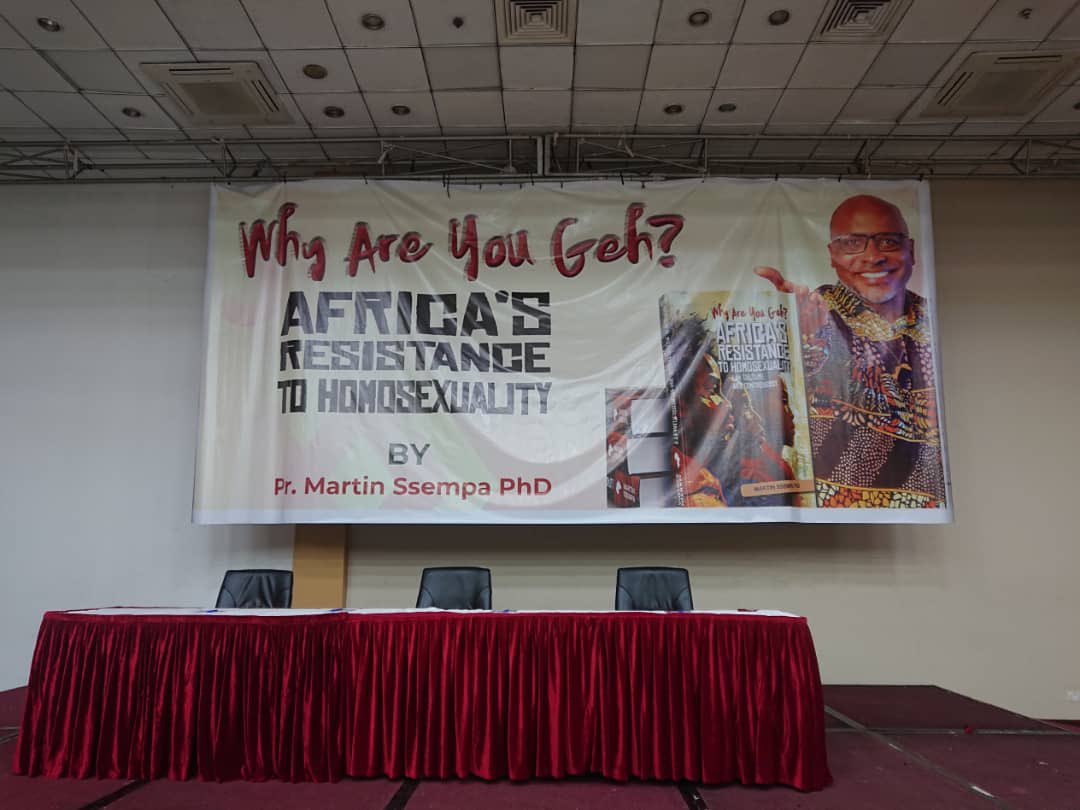
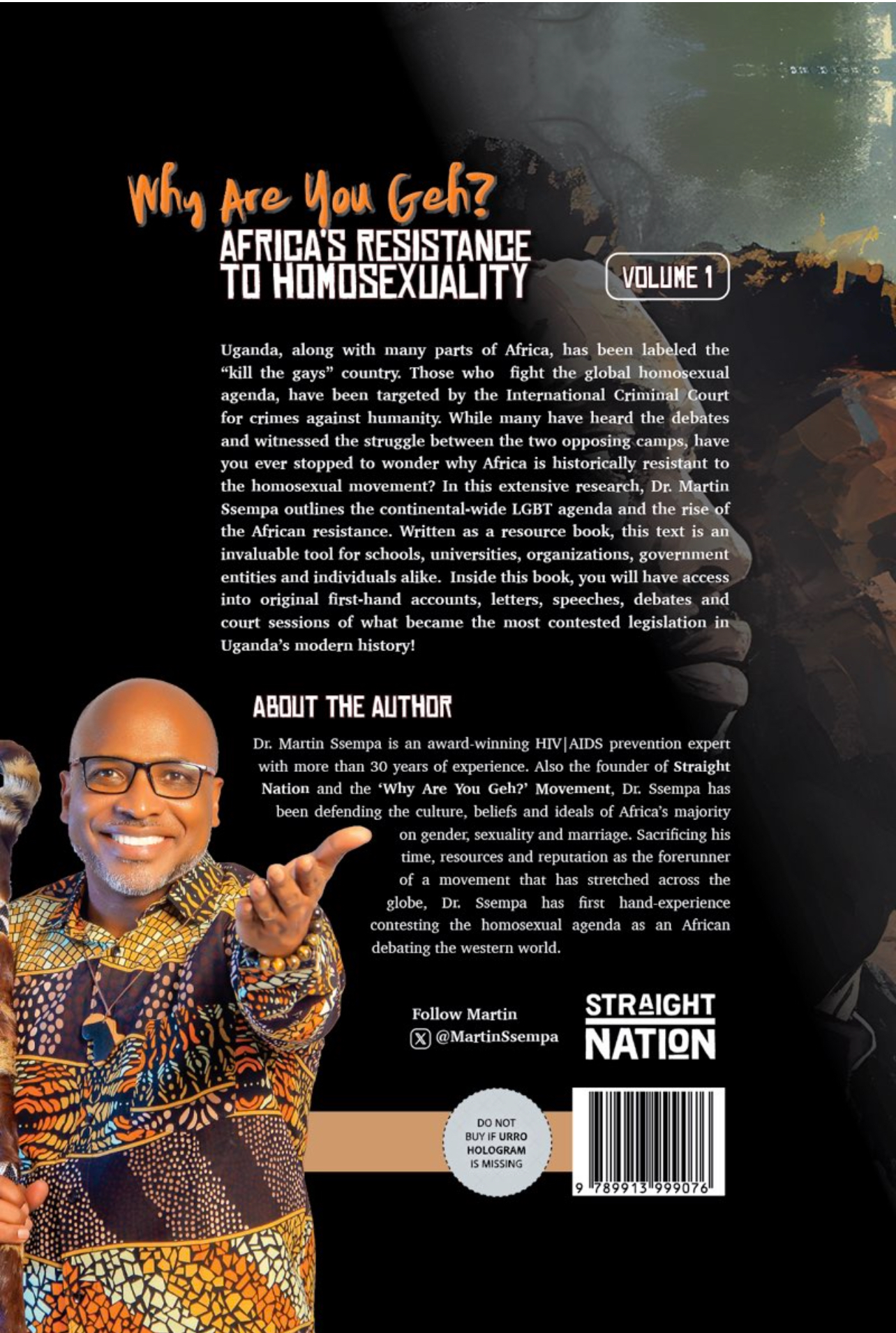
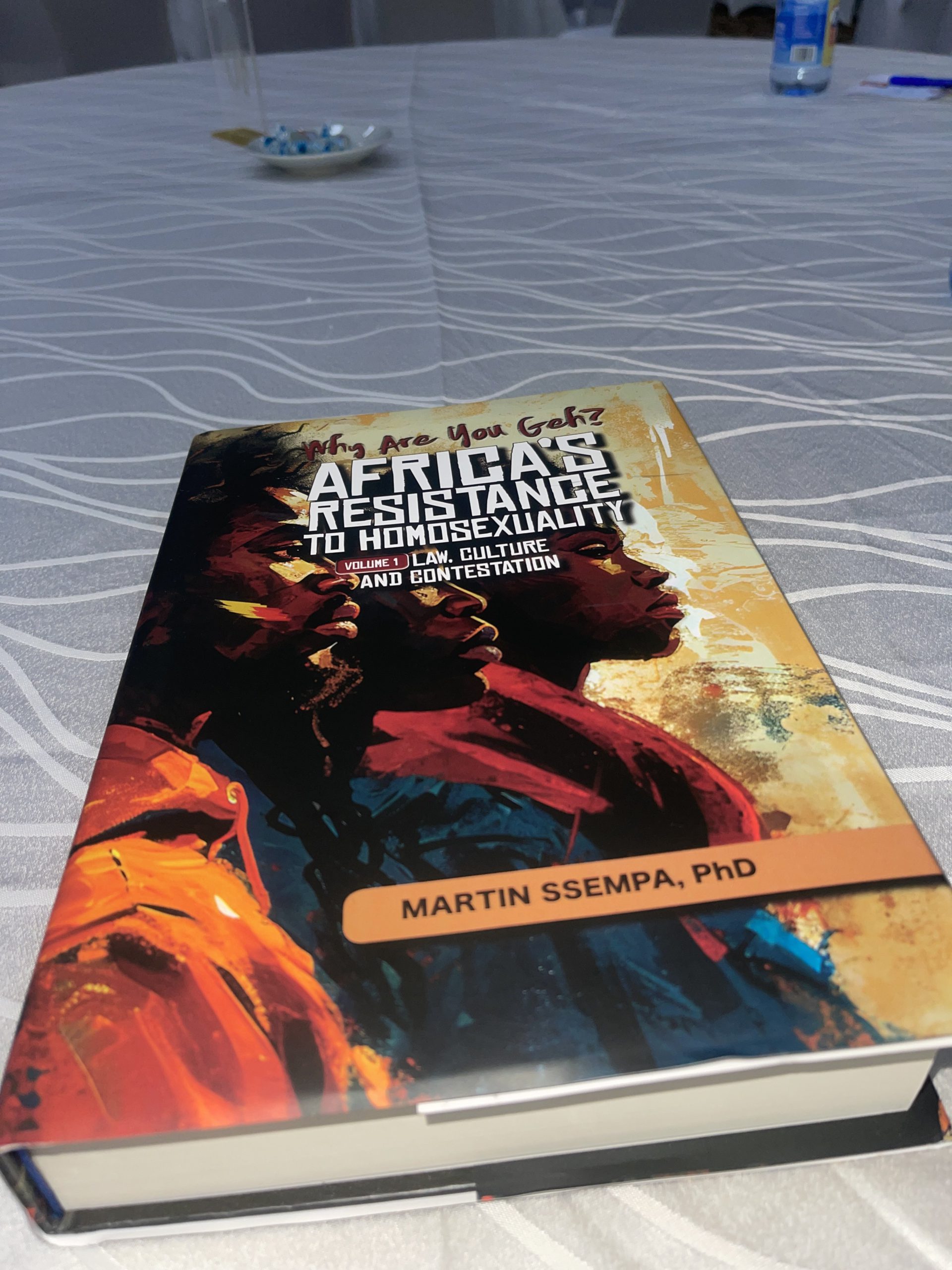
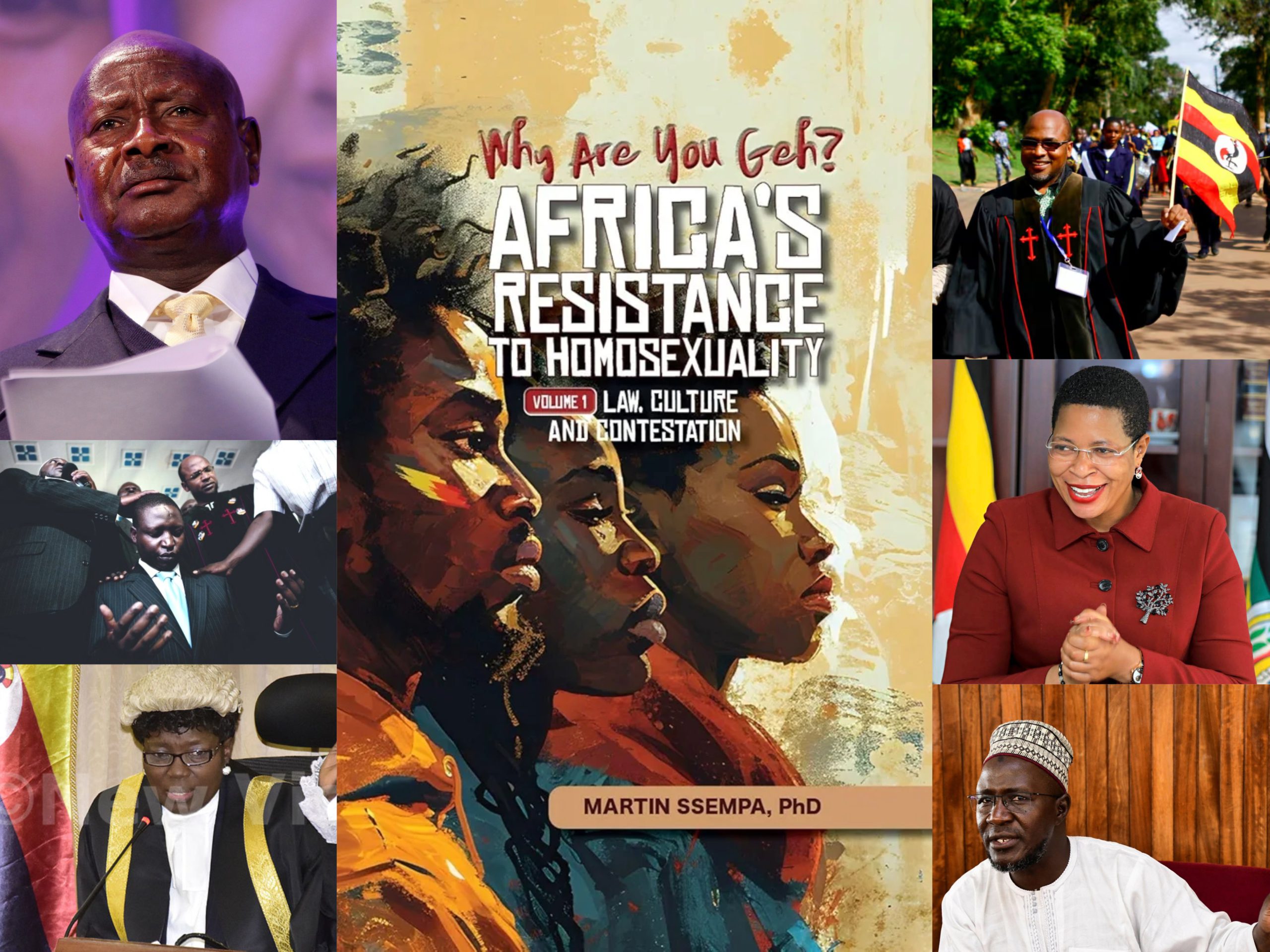

The Classic “Why Are You Geh?” Interview
The title of the book pays homage to the 2012 NBS Television debate, a cultural milestone that propelled Ssempa into the global spotlight. Aired on March 4, 2012, and hosted by Simon Njala, the debate pitted Ssempa against Pepe Onziema, a prominent LGBTQ+ activist in Uganda. The impassioned arguments of Ssempa, including his now-famous phrase “Why are you geh?”, resonated with many in Uganda who shared his view that homosexuality is a Western import at odds with values in Africa. The viral spread of the debate, amplified by social media and internet memes, transformed it into a global cultural artifact, with clips garnering millions of views. The confrontational style and unapologetic defense of traditions in Africa by Ssempa made the interview a touchstone for the anti-LGBTQ+ movement, inspiring the title and mission of the book to resist modern colonialism.
A Battle Cry Against Modern Colonialism
During his address at the launch, Pastor Ssempa delivered a resolute and impassioned message, framing his work as a defense against a new wave of Western imperialism:
“Why Are You Geh? is a battle cry for Africa. We are resisting a foreign agenda that threatens our children and our heritage. Homosexuality is not our culture—it’s a colonial imposition, and we will fight it with all we have.”
The narrative of Ssempa of resistance to modern colonialism aligns with broader sentiments in Africa, as articulated by President Yoweri Museveni, who has repeatedly criticized Western attempts to impose LGBTQ+ ideologies through financial coercion. In August 2023, when the World Bank suspended new public financing to Uganda in response to the Anti-Homosexuality Act, Museveni declared:
“It is unfortunate that the World Bank and other actors dare to want to coerce us into abandoning our faith, culture, principles, and sovereignty, using money. Uganda does not need pressure from anybody to know how to solve problems in our society. They are our problems.”
Following the election of President Trump in November 2024 and the shift of his administration away from promoting LGBTQ+ initiatives abroad, Museveni noted that Western funding, previously cut due to the stance in Uganda, was being restored. In early 2025, Museveni welcomed the recognition by President Trump of values in Uganda, stating:
“The West had cut off our funds because we stood for our culture, but now through President Trump, they say we are good people. We said, ‘You’re welcome.’”
This development, celebrated by supporters of Ssempa, underscores the message of the book about the successful resistance to Western pressure in Uganda, reinforcing the narrative that the stance in Africa is gaining international validation.
Hon. David Bahati, a key guest speaker representing the government of Uganda, lauded the book as a critical complement to national efforts to preserve cultural values. Referencing the longstanding position of Museveni, Bahati stated:
“President Museveni has consistently reminded us that we should not allow ourselves to be misled by foreigners who want to impose their way of life on us. We must preserve the dignity of the African and our traditional family structures.”
The broader stance of Museveni against Western influence was further emphasized in a 2023 speech at an Entebbe conference, where he called on African leaders to reject homosexuality as a “danger to the procreation of the human race” and lead the world in resisting this “degeneration and decadence.”
Cultural elder Omutaka praised the book for honoring those who have stood firm in defending values in Uganda and across Africa, describing Ssempa as “a hunted man on the run” during the writing of the book, emphasizing the personal risks he endured. Other speakers at the event reinforced this message, urging people in Uganda to defend their heritage and resist the normalization of homosexuality, which they argue is a modern colonial tool to undermine cultural identity in Africa under the guise of human rights campaigns.
The Five Spheres of Relevance
According to the team of Ssempa, Why Are You Geh? addresses five critical areas that highlight its significance to society in Africa in resisting modern colonialism:
- Education: The book offers solutions to the perceived recruitment of children into the “sodomy camp” by outlining how children are allegedly seduced and indoctrinated by Western-backed initiatives. It equips school administrators, teachers, and parents with tools to recognize signs of influence and protect students. It also addresses the infiltration of the education system, particularly in university curricula such as law and gender studies, where Ssempa claims corrupted women’s movements, funded by Western entities, have pushed the LGBTQ+ agenda. The book provides a framework for “intellectual reconstruction” to reverse this colonial damage.
- Family: As the cornerstone of society, the family is a primary target of the “sodomy movement,” according to Ssempa. The book offers guidance on protecting the marriage institution and children from external agendas, serving as a wake-up call for parents and patriots concerned about societal stability and the future of children in Africa amidst Western cultural imposition.
- Culture: The book champions cultural identity in Africa, urging readers to take pride in their heritage and resist Western attempts to erase values in Africa. Ssempa argues that culture is central to identity and belonging, warning that its loss leads to purposelessness and societal dysfunction, as observed in the West. He calls on those with “Black pride” or cultural pride to embrace the message of the book as a defense against modern colonialism.
- Church and Religious Leaders: The book boldly confronts the intimidation of churches by the “sodomy movement,” which Ssempa describes as a “satanic cult” opposed to God and supported by Western powers. It encourages religious leaders to uphold biblical teachings against homosexuality without fear of consequences, such as visa denials to Western countries. Ssempa asserts that supporting this cause is essential to preventing “godlessness” in churches and pulpits, resisting the colonial erosion of spirituality in Africa.
- International Relations, Travel, and Trade: The book talks about struggles with international backlash in Uganda, including being labeled a nation of “gay killers,” which strained trade relations and led to visa denials for those upholding anti-LGBTQ+ policies. Ssempa celebrates milestones like the apology of the World Bank to Uganda, noting that some in Uganda lost scholarships and jobs due to their stance. The book also explores how international financial assistance was used as a colonial tool to pressure Uganda into adopting pro-LGBTQ+ policies, highlighting the geopolitical stakes of this cultural battle.
About the Author | Who is Dr Martin Ssempa?
Dr. Martin Ssempa, founder of Straight Nation and the Why Are You Geh? Movement, is an HIV/AIDS prevention expert with over 30 years of experience. A prominent voice in the cultural and religious spheres of Uganda, Ssempa has engaged in global debates on gender and sexuality, advocating for perspectives in Africa against Western ideological dominance. His leadership in supporting the 2023 Anti-Homosexuality Act, a landmark legislative achievement, has solidified his influence. The personal sacrifices of Ssempa, including reputational and financial costs, are detailed in the book, portraying him as a dedicated defender of values in Africa against modern colonialism.

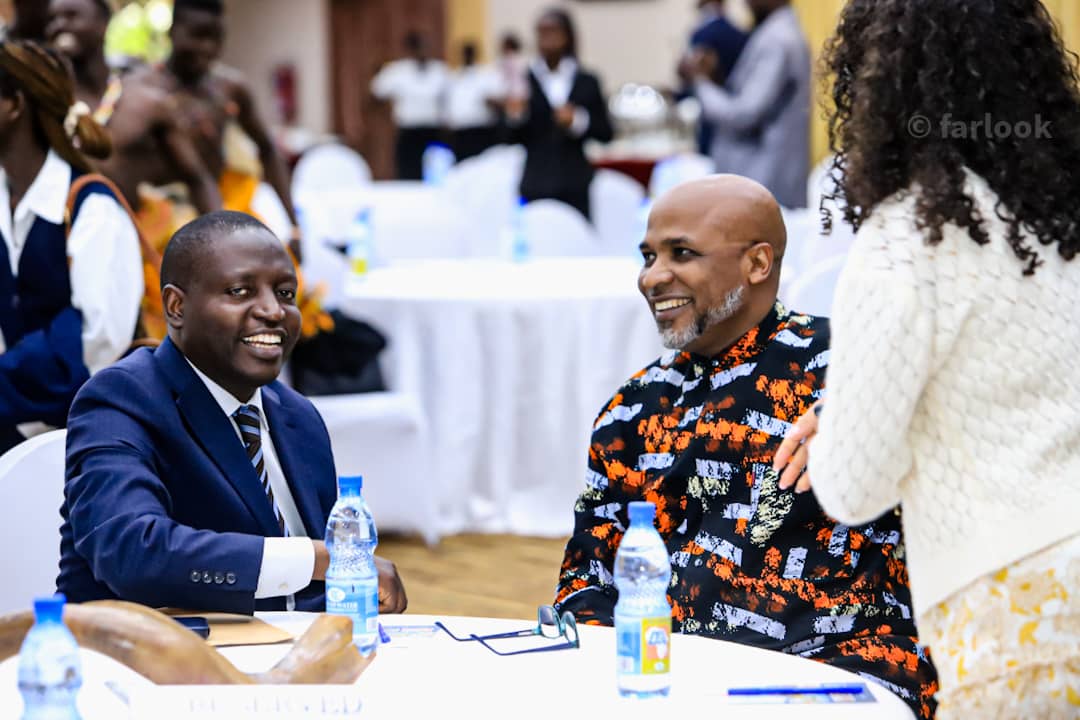
Public and Official Reactions
The launch drew enthusiastic support from attendees who view Why Are You Geh? as a courageous defense of sovereignty in Africa and a tool to combat “moral decay” perpetuated by Western agendas. Religious leaders and community members praised its role in equipping society to uphold traditional values. One attendee remarked:
“This book is for anyone who loves God, hates sin, and cares about the future of our children.”
However, critics have voiced concerns about narratives that marginalize LGBTQ+ individuals. Frank Mugisha, executive director of Sexual Minorities Uganda and a prominent LGBTQ+ activist, has consistently argued that homosexuality is not a Western import but part of the history of Africa. In a 2023 interview, Mugisha stated:
“The Ugandan society has always lived with homosexual persons… They were never killed. They were never arrested. The homophobia and transphobia we are seeing… is from the West, mostly peddled by extreme American evangelicals.”
Mugisha has also highlighted the historical presence of same-sex relationships in Uganda, noting that King Mwanga II of the Buganda Kingdom was known to have engaged in such relations, underscoring that “there is nothing un-African about me.” His activism, including legal challenges to anti-homosexuality laws, reflects his commitment to protecting LGBTQ+ individuals in Uganda, despite facing death threats and the murder of his colleague David Kato in 2011.
Journalist Andrew Mwenda, a vocal critic of anti-homosexuality legislation, has argued that such laws inadvertently promote tolerance by sparking public debate. In a 2013 debate on Kingdom FM with Ssempa, Mwenda contended:
“The more we have debate on homosexuality, the more it will promote debate and the more it will create tolerance and understanding.”
Mwenda has also cautioned against isolating Uganda internationally, noting in 2019:
“Uganda is not an island on Mars… This law offends your partners… These countries have investors and businesses in this country and because these businesses fear being boycotted in Europe, they will pull out.”
The perspective of Mwenda emphasizes the economic and diplomatic costs of anti-LGBTQ+ policies, while advocating for cultural evolution over time. Both Mugisha and Mwenda were petitioners in the successful 2014 challenge to the Anti-Homosexuality Act, which was nullified on procedural grounds.
Despite these critiques, supporters like Hon. Bahati and religious leaders maintain that Uganda respects human rights but prioritizes cultural heritage over Western colonial pressures. The 2023 Anti-Homosexuality Act, celebrated in the book, reflects this stance, reinforcing penalties for homosexual activities and garnering broad public support.
What is the Global Context and Impact of Why Are You Geh?
The release of the book aligns with significant global developments that bolster the narrative of Ssempa of resistance to modern colonialism in Africa. On January 20, 2025, U.S. President Donald J. Trump announced the recognition by his administration of only two genders, followed by the cancellation of a $4.6 million grant for LGBTQ+ initiatives in Uganda and a $40 million grant to Johns Hopkins University aimed at influencing social attitudes in Uganda on March 4, 2025. These actions, outlined in the synopsis of the book, underscore the geopolitical tensions surrounding gender ideology, which Ssempa frames as a Western attempt to impose alien values on Africa.
In the United Kingdom, a landmark court ruling on April 16, 2025, affirmed that the definition of sex in the Equality Act 2010 is binary—male or female—based on biological reality. The 88-page ruling, celebrated by the team of Ssempa as a “glory to God” moment, rejected notions of fluid gender identities, aligning with the arguments of the book against Western-driven gender ideologies. This ruling, reported by the BBC, strengthens the global momentum for traditional definitions of sex and gender, which Ssempa cites as validation of resistance in Africa.
In Hungary, another nation resisting Western cultural pressures, the government has imposed strict bans on LGBTQ+ events, including pride marches. Since 2021, the laws of Hungary have prohibited the “promotion” of homosexuality to minors, effectively halting pride parades and restricting LGBTQ+ content in media and schools. Prime Minister Viktor Orbán has framed these measures as a defense of “Christian values” and national sovereignty against EU and Western liberal agendas, mirroring the rhetoric of Ssempa about modern colonialism. In 2023, the President of Hungary, Katalin Novak, vetoed a bill that would have further tightened these restrictions, citing concerns about fundamental rights, but the existing bans remain in place, reinforcing the alignment of Hungary with the cultural stance of Uganda.
The book explores challenges with international institutions faced by Uganda, including accusations of crimes against humanity at the International Criminal Court, and celebrates victories like the apology of the World Bank to Uganda for previous sanctions. Internationally, the ties of Ssempa to American evangelical groups, some of which previously funded his ministry, have drawn scrutiny, and the release of the book may prompt renewed criticism from Western governments and organizations that have withheld aid in response to policies in Uganda. However, Ssempa argues that these pressures are evidence of a colonial agenda, which Africa must resist to preserve sovereignty.
A Defining Work for Africa
Why Are You Geh? is expected to ignite robust national and international conversations about culture, identity, and sovereignty in the context of resisting modern colonialism. Supporters view it as a rallying cry for preserving values in Africa, equipping society to resist Western agendas that threaten cultural integrity. Available for purchase by calling 0772641028, the book is being distributed across Uganda to bolster efforts to uphold traditional values.
Pastor Ssempa concluded the launch with a passionate call to action:
“This book is for anyone who loves God, hates sin, and cares about the future of our children. Order your copy today and join the fight for Africa’s heritage against the new colonial masters.”
With its bold stance, extensive research, and unapologetic defense of values in Africa, Why Are You Geh? stands as a defining work in the global discourse on gender, sexuality, and cultural identity, offering a distinctly African perspective on resisting modern colonialism in one of the most divisive issues of our time.



